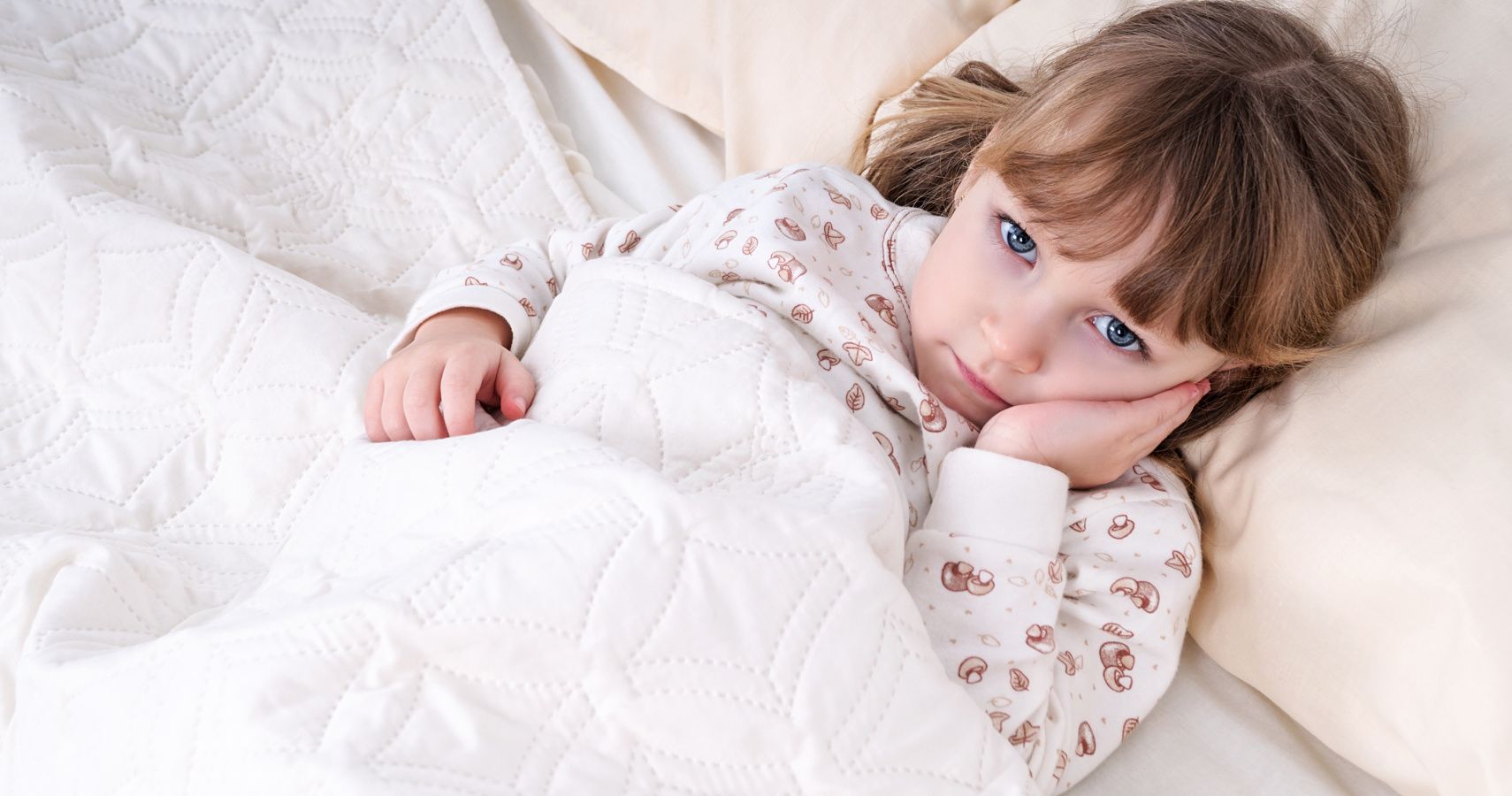Having a child that is a bed-wetter can be stressful not just for the child, but for the parents as well. Many parents have tried so many different tactics to try to avoid their child waking up with a wet bed, but they often don't work. If you have a child at home that is wetting their bed, rest assured that it's much more common than you may think it is.
Dr. Howard Bennett is a pediatrician who has written a book about overcoming bedwetting and told WebMD that people don't realize how common a problem it is because they rarely talk about it. "I call it the hidden problem of childhood," he said. "Unlike asthma or allergies, it's just not talked about outside the house." Not talking about often lends to the shame many kids feel because of it. "Ninety percent of kids think they're the only ones who wet the bed, which makes them feel even worse," Bennett said.
WebMD states that between 5 and 7 million children experience bed-wetting, proving this isn't something that rarely happens. While some parents try to limit liquids before bed or think their child is simply too lazy to get up in the middle of the night, Dr. Bennett says there is a more scientific reason for having a child who wets the bed. "The majority of bedwetting is inherited," he said. "For three out of four kids, either a parent or a first-degree relative also wet the bed in childhood." WebMD also writes that there is a specific gene that can affect nighttime bladder control.
Genetics aren't solely to blame for bed-wetting, Dr. Bennett says. In some children the nighttime bladder function takes longer to mature. Some children have low anti-diuretic hormone and some children are simply deeper sleepers, making it harder for them to wake at night to use the bathroom. Smaller bladders and constipation are also factors Bennett believes can cause nighttime bed-wetting.
Less than 3% of children who wet the bed at night have an actual physical reason for the bed-wetting. "The vast majority of kids who are wet at night have nothing medically wrong with them," Dr. Bennett says. There are always other factors that may affect a child, including changes in home life or problems at school that can affect your child's sleep and contribute to bed wetting.
Bed-wetting really isn't something to worry about until it starts to cause anxiety and stress in your child. "After age 6, many children start to have sleepovers, and that's when bed-wetting can be particularly embarrassing and stressful," says Bennett.
"It's just as important to know what doesn't cause bedwetting -- the myths around it," says Bennett. "No child wets the bed on purpose, or from being too lazy to get up to pee."
Bennett suggests trying to help a child avoid any nighttime accidents by limited liquids before bed and making one last trip to the bathroom before bedtime. He also suggests having a plastic sheet on the mattress to avoid messes that a quick change of sheets can fix, and possibly using a bed-wetting alarm to help notify your child if they begin to wet the bed.
There are exercises a child can do to help improve their bladder as well as medications that may help. If you have a child who is a bed-wetter try to remember that many kids experience this and they will eventually out grow it. If it persists and you are worried it is always advisable to make an appointment with your family doctor to ensure there isn't a medical cause for the bed-wetting.
READ NEXT: Mom Realizes Her Son's ADHD Symptoms Were Caused By Sleep Deprivation

